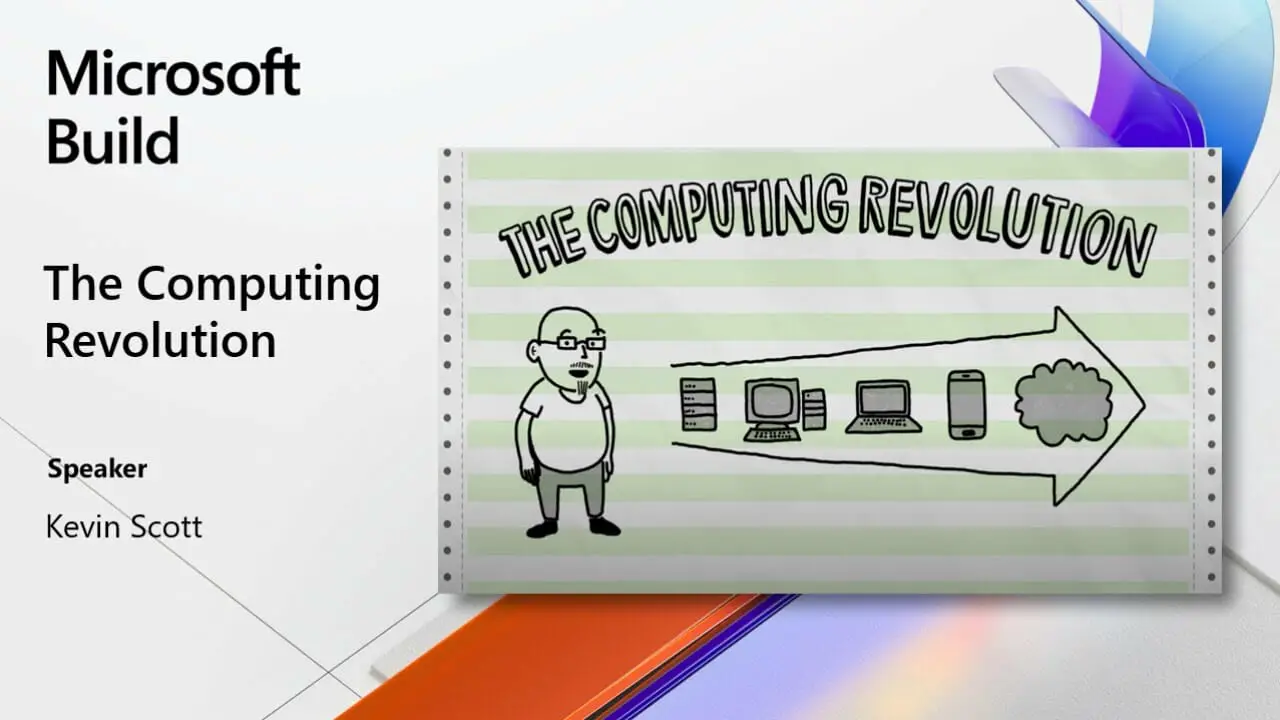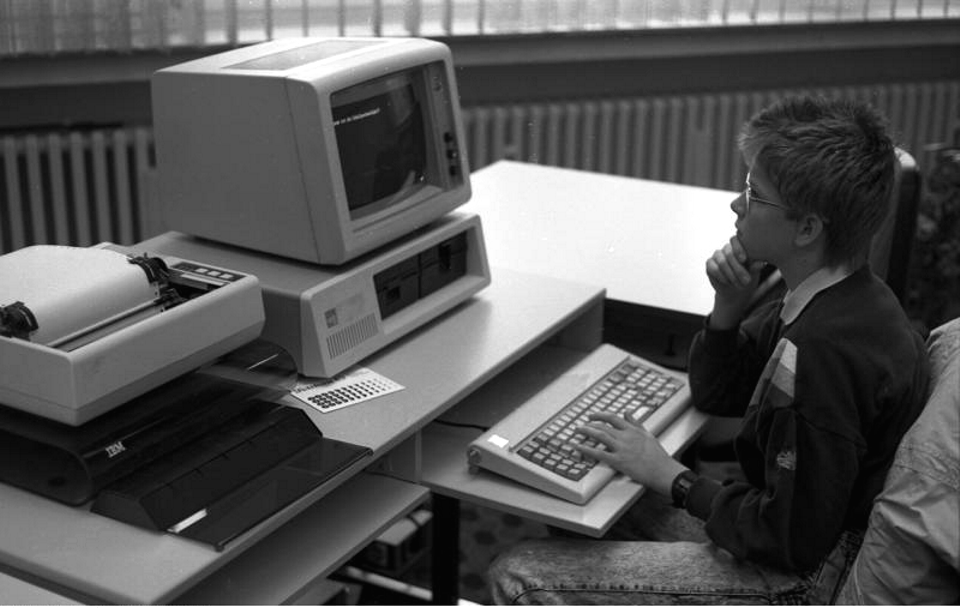The Role of BASIC in the Personal Computing Revolution

BASIC (Beginner’s All-purpose Symbolic Instruction Code) played a pivotal role in the personal computing revolution of the 1970s and 1980s.

Accessibility and Ease of Use:

- BASIC was an easy-to-understand and user-friendly programming language.
- Its simple syntax and interactive nature allowed beginners to quickly write and run programs.
- This made it accessible to individuals without formal computer training, enabling the widespread adoption of personal computers.
Versatile and Capable:
- BASIC was versatile and could be used for a wide range of applications.
- It was capable of handling text, graphics, sound, and file management.
- This made it a popular choice for writing games, educational software, and business applications.
Early Microcomputer Platforms:
- BASIC was available on many early microcomputer platforms, such as the Apple II, Commodore VIC-20, and TRS-80.
- By providing a common programming language across these systems, it fostered the development of a thriving software ecosystem.
Educational Impact:
- BASIC was widely used in schools and universities to introduce students to programming.
- It inspired a generation of programmers and computer enthusiasts.
- The accessibility of BASIC allowed young people to explore computer science and develop their problem-solving skills.
Commercial Applications:
- BASIC was also used by businesses to develop custom applications.
- Its ability to access hardware devices made it suitable for tasks such as controlling machinery or monitoring sensors.
- Small businesses and entrepreneurs could use BASIC to automate tasks and improve efficiency.
Decline and Legacy:
- In the mid-1980s, the rise of structured programming languages and graphical user interfaces (GUIs) led to the decline of BASIC.
- However, its legacy continues to influence modern programming.
- Concepts such as variables, loops, and conditional statements are fundamental to BASIC and have been adopted by many other languages.
Conclusion:
BASIC was an indispensable catalyst in the personal computing revolution. Its accessibility, versatility, and educational impact made it the ideal language for beginners and enthusiasts alike. Through BASIC, ordinary individuals were empowered to write programs and shape the early days of computing. Its influence can still be seen in the programming languages and technologies we use today.## The Role Of Basic In The Personal Computing Revolution
Executive Summary
BASIC (Beginner’s All-purpose Symbolic Instruction Code) played a pivotal role in the personal computing revolution by empowering hobbyists, students, and enthusiasts to create and run their own programs on personal computers. Its simplicity, ease of use, and wide availability made it the language of choice for early computer users, fostering a vibrant community of programmers and propelling the growth of the personal computing industry.
Introduction
The personal computing revolution was sparked by the introduction of affordable, user-friendly microcomputers in the late 1970s. These machines lacked the sophisticated operating systems and user interfaces of modern computers, making them challenging to use for non-technical individuals. BASIC emerged as a solution to this problem, providing a simple and accessible way for users to interact with their computers.
FAQs
What is BASIC?
BASIC is a high-level programming language designed for beginners and non-programmers. It simplifies complex programming concepts, making it easy for users to create and execute their own programs.
Why was BASIC so popular in the early days of personal computing?
BASIC’s simplicity, ease of use, and wide availability made it the ideal language for hobbyists and enthusiasts who lacked formal programming training. It allowed them to quickly learn the basics of programming and create their own applications.
What are some of the key features of BASIC?
- Beginner-friendly: Designed with beginners in mind, BASIC uses simple syntax and avoids complex programming concepts.
- Interactive: Allows users to enter commands directly into the computer and receive immediate feedback.
- Structured: Programs in BASIC are organized into lines, making them easier to read, understand, and debug.
- Portable: BASIC was available on a wide range of personal computers, fostering a cross-platform community of programmers.
Subtopics
Personal Computer Hobbyists
- BASIC enabled hobbyists to explore the capabilities of their personal computers and create their own games, utilities, and educational programs.
- It fostered a thriving community of self-taught programmers who shared their knowledge and innovations through magazines and user groups.
- Key figures like Bill Gates and Steve Ballmer got their start in programming through BASIC on the Altair 8800.
Education
- BASIC became a popular teaching tool in schools and universities, introducing students to computer science and programming.
- Its simplicity made it accessible to students with little or no prior programming experience.
- Educational software companies developed numerous BASIC-based learning programs for subjects like math, science, and history.
Small Businesses
- Small businesses used BASIC to create custom applications for their specific needs, such as accounting, inventory management, and customer tracking.
- It allowed businesses to automate tasks and improve efficiency without the need for expensive custom software development.
- BASIC programs were often tailored to the unique requirements of individual businesses.
Graphics and Sound
- BASIC provided rudimentary support for graphics and sound, allowing users to create simple games and interactive programs.
- It introduced hobbyists and enthusiasts to the possibilities of computer-generated graphics and sound effects.
- BASIC-based games like “Space Invaders” and “Asteroids” became popular classics.
Legacy and Impact
- BASIC’s influence can still be seen in modern programming languages like Visual Basic and Python.
- It laid the foundation for the development of graphical user interfaces (GUIs) and object-oriented programming.
- BASIC played a significant role in the democratization of computing and the growth of the personal computing industry.
Conclusion
BASIC played a transformative role in the personal computing revolution. Its simplicity, ease of use, and widespread availability empowered hobbyists, students, enthusiasts, and businesses to create and run their own programs on personal computers. BASIC fostered a vibrant community of programmers, advanced the field of computer science, and ultimately paved the way for the technological advancements we enjoy today.
Keyword Tags
- BASIC programming language
- Personal computing revolution
- Computer literacy
- Beginner programmers
- Educational software

